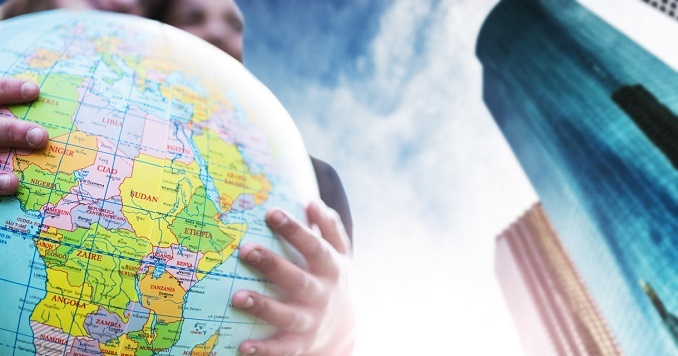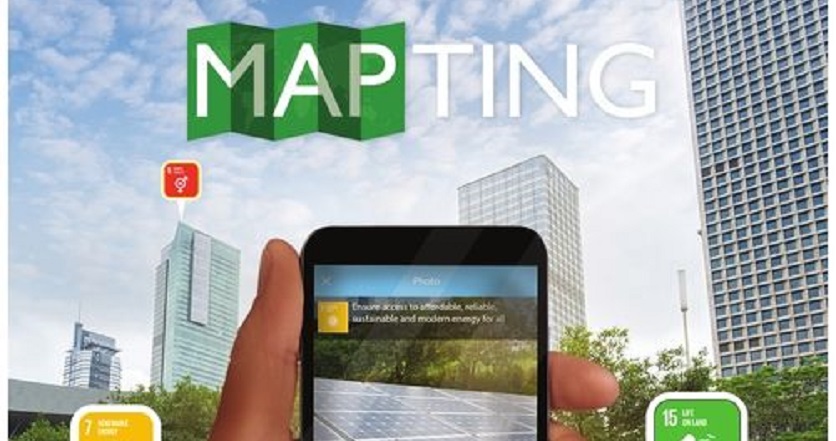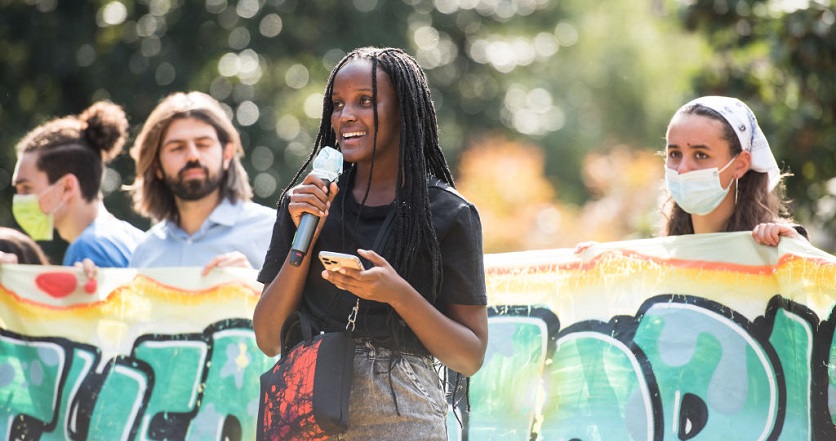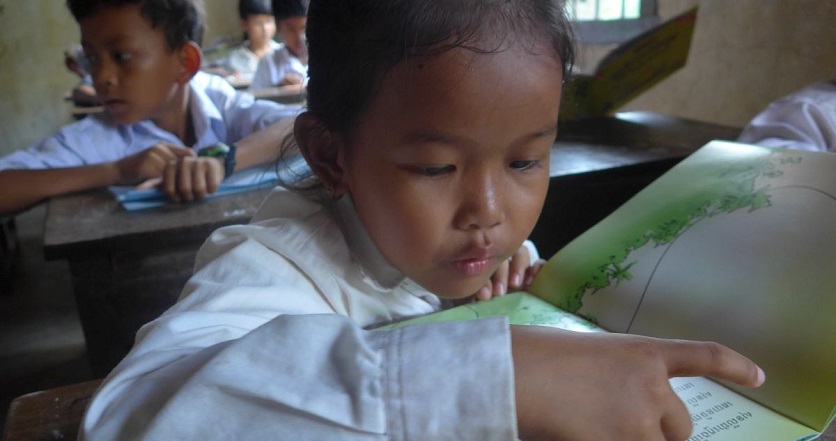Sowing Seeds of Hope: A Buddhist Call for Courageous Action for Climate Justice
On the occasion of the 26th UN Climate Change Conference of the Parties (COP26) in October 2021 in Glasgow, UK, the SGI (Soka Gakkai International) issued the following statement focusing attention on four key areas.

COP26 is a vital chance for genuine global solidarity of action to address the “Code Red for the Climate” that humanity faces. As well as accelerating the reduction of greenhouse gases, it is crucial that the outcomes of COP26 leave no one behind, strengthen education, give increased leadership opportunities to young people and empower us all to sow seeds of hope and action.
1. Addressing Human Suffering
It is vital that we attend to the actual suffering already being experienced by individuals and families around the world as a result of climate change. These realities are often obscured in macroeconomic data. We need compassion to feel the suffering of those most directly affected by the multiple effects of the climate emergency, courage to confront painful truths, and wisdom to identify the action we can take, both individually and collectively, to alleviate that suffering.
Central to our approach must be listening and responding to the needs, voices and perspectives of those who are affected the most, people who are also vulnerable to gender inequalities and other forms of structural discrimination.
We must not remain indifferent and leave any group or individual to suffer alone. As the Sustainable Development Goals (SDGs) remind us, in our interconnected world full of resources and human talent and ingenuity, it is not acceptable to leave anyone behind.
At COP26, it is crucial that State Parties and negotiators:
- Listen to the voices of those who are most impacted in the Global South and Indigenous Peoples.
- Be willing to have courageous and open dialogue and hear uncomfortable truths.
- Heed the calls for Climate Justice.
- Match their words with bold and ambitious action to keep the goal of limiting global warming to 1.5°C.
- Lead by example and support calls for ambitious emission-cutting targets toward the goal of achieving real net-zero carbon emissions at the earliest opportunity and a just transition in society, with the goal of shifting all investments from fossil fuels to renewable energy sources.
- Ensure income protection and training programs for those who will lose jobs through this transition away from fossil fuels.
- Establish separate funding for loss and damage. An international loss and damage fund is essential.
- Fully recognize human rights in all aspects of climate change policymaking, actively including human rights safeguards in Article 6 of the Paris Agreement on market mechanisms.
2. Education and Empowerment
Education about sustainability and climate issues is vital, learning about the links between human behavior and our environment and societies. Education that includes reflection and empowerment is needed so that the weight of knowledge does not become a burden. Education must inspire the faith that each of us has both the power and the responsibility to effect positive change on a global scale.
At COP26, it is crucial that State Parties and negotiators:
- Strengthen the six elements of Action for Climate Empowerment (ACE): (1) education, (2) training, (3) public awareness, (4) public participation, (5) public access to information, and (6) international cooperation on these issues.
- Adopt a new ACE work programme that is rooted in human rights, providing a longer term vision toward 2030 in line with the 2030 Agenda and a 5-year detailed action plan with guidelines for regular reporting and monitoring.
- Integrate ACE across all the work streams under the United Nations Framework Convention on Climate Change (UNFCCC), including finance mechanisms, and establish new mechanisms to ensure better information sharing and inclusion among parties and non-party stakeholders, such as a task force, an ACE marketplace and a seed fund.
3. Youth Engagement and Leadership
Listening to the voices of young people is not optional; it is the only logical path forward if we are genuinely concerned about the future of our world.
Youth have the clear-sightedness, the creativity and the boldness to lead us forward in ways that break down old stalemates and refresh our spirits. We must invest all our energy in empowering and supporting them, working together with them to find solutions to all the problems we face.
At COP26, it is crucial that State Parties and negotiators:
- Record, share and amplify youth voices, including especially the outcomes of the Pre-COP Youth4Climate Event and the 16th Conference of Youth (COY16).
- Give real leadership opportunities related to climate issues to youth.
From a broader UN perspective, it is essential:
- To hold regional- and national-level youth summits focusing on climate and other post-COVID challenges that we must face together.
- To establish a UN Youth Council that would regularize and sustain youth engagement and leadership.
- For the UN Security Council to adopt a resolution encouraging the mainstreaming of youth participation in climate-related decision-making, similar to Security Council Resolution 2250, which urges member states to strengthen the role played by young people in peace and security issues.
4. Civil Society Takes the Lead: Sowing Seeds of Hope and Action
In his 2020 peace proposal SGI President Daisaku Ikeda states:
“Every one of us, starting from where we are now, has the potential to become an architect of change for a sustainable global society, and . . . our every action is a seed of change, a seed of hope.”
The implications of the climate crisis are so profound and so complex that they can be daunting and overwhelming, leaving people feeling disempowered and hopeless. This is why it is vital to take action at the local level in whatever way we can.
And joining with others to take collective action dramatically increases our capacity and our confidence that positive change can be achieved.
Beyond COP26, it is essential that, as individuals, we:
- Nurture “active hope.”
- Link inner transformation, such as tackling greed and actively broadening the sphere of our compassion, to local action addressing root causes.
- Link small actions to the bigger picture, such as growing one’s own food or planting trees—strengthening connections and building solidarity of action by joining local and online community associations.
As the unlimited potential of each individual is brought to blossom, each playing the unique role that only they can play, the circle of empowered individuals will expand and help set a more just and sustainable future course for human civilization and our planet.







